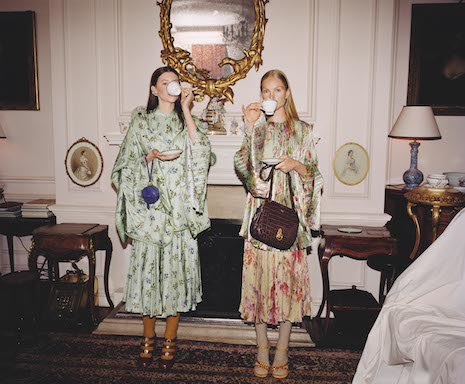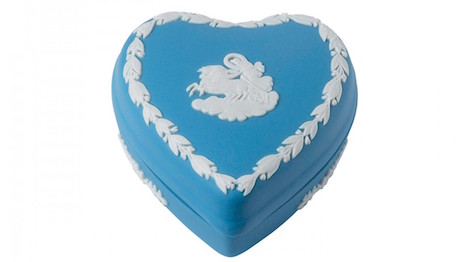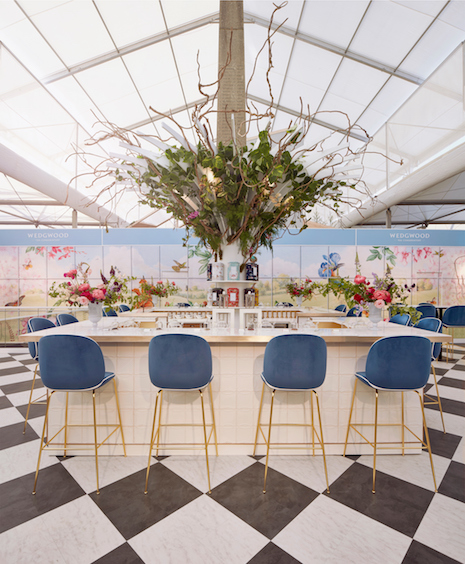
Brothers Nick and Giles English in 2002 launched Bremont as a luxury maker of crafted pilot's watches with manufacturing at Henley on Thames in England. Image credit: Bremont
By Laura Tan
In the same way that true luxury does not need to be spelled out or defined by an exacting formula, a brand’s Britishness should not be overly stated. In fact, the very act of doing so would be decidedly un-British.
Instead, Britishness needs to be dealt with subtly and authentically, ensuring it has a true connection to the wider brand story.
This article outlines some pointers for how luxury brands can communicate their Britishness. It is based on research conducted in collaboration with Walpole, the trade association for British luxury brands.
British, your own way
The first lesson for any British luxury brand is that it needs to find its own unique take on Britishness. Just as discerning customers can now spot “greenwashing” a mile off when it comes to sustainability, “British washing” should be avoided.
The brands that use their Britishness most effectively are those that have a deep understanding of why it even matters that they are British.
For example, is it to do with the fact your products are made in Britain and could not be created to such a standard anywhere else?
Is it because the British landscape or culture directly inspires your designs?
It does not matter exactly what your British connection is – more that there truly is one.
“Everyone has to find their own way of expressing Britishness,” said Charlotte O’Sullivan, marketing director at Mulberry.
“You need to ask why your Britishness is important,” she said. “Could you do what you do elsewhere in the world? Or are you truly rooted in Britain?”
 Founded in 1971, Mulberry combines the best of British town and country in its apparel and accessories offerings. Seen here: Mulberry's winter 2017 campaign. Image credit: Mulberry
Founded in 1971, Mulberry combines the best of British town and country in its apparel and accessories offerings. Seen here: Mulberry's winter 2017 campaign. Image credit: Mulberry
British, in part
Britishness can be a point of difference for many luxury brands, particularly in sectors where the competition tends not to be British.
Take watches, for example, where Swiss-made dominates.
In this case, “Made in England” can be a differentiator for a brand such as Bremont that manufactures in Henley-on-Thames.
However, Britishness alone will not be the purchase driver. Instead, it can add to the list of things that justify a luxury purchase.
Therefore, when a brand is figuring out its messaging framework and its visual identity, finding the right place for Britishness is key. It can be used to bolster existing brand truths and it should always have a consumer benefit.
For example, when telling a brand’s production story and, therefore, quality story, consider how being made in the United Kingdom enhances the consumer’s final experience of that brand.
“When you look at the best brands, Britishness is a little bit of their DNA but not a lot,” said Michael Ward, managing director of Harrods and chairman of Walpole.
Britishness, softly spoken
The modern luxury customer is a sophisticated individual who takes pleasure in discovering the stories behind brands in his or her own way.
As such, Britishness should be deduced through subtle cues, often leaving customers to figure it out for themselves.
Most luxury customers today have an international lifestyle and, therefore, we can rely on them to pick up on hints of Britishness. This is particularly the case for the younger generation of luxury customers who are very attuned to more niche cultural trends and behavior through their constant consumption of social media.
For example, many young Chinese visitors to London have an in-depth understanding of the style tribes of different London neighborhoods, making pilgrimages to small leading-edge boutiques in East London as well as the luxury classics on Bond Street.
 A storied British brand found in 1759, Wedgwood is prized for its vitreous unglazed look with collections still designed in Staffordshire, England. Seen here: The Heart Box featuring a white motif in bas-relief set against the hue of pale blue Jasperware. Image credit: Wedgwood
A storied British brand found in 1759, Wedgwood is prized for its vitreous unglazed look with collections still designed in Staffordshire, England. Seen here: The Heart Box featuring a white motif in bas-relief set against the hue of pale blue Jasperware. Image credit: Wedgwood
British, by association
Many brands communicate their Britishness through the brands and people that they associate with via sponsorships, collaborations and brand ambassadors. It is a clever way to tell the world you are British without having to state it too overtly.
A common technique is to be visible – either as an official sponsor or more unofficially through mere attendance – at quintessentially British events or causes. Even better if there is a strong connection to those events.
For example, Wedgwood’s ongoing partnership with the Royal Horticultural Society makes perfect sense since botanical prints have inspired its designs for decades.
 Wedgwood's Chelsea Flower Show exhibit in 2017. Seen here: Wedgwood's tea conservatory bar. Image credit: Wedgwood
Wedgwood's Chelsea Flower Show exhibit in 2017. Seen here: Wedgwood's tea conservatory bar. Image credit: Wedgwood
IT IS IMPORTANT to state that Britishness is not a one-dimensional characteristic.
The contradictory nature of the British – being both orderly and rebellious, historical and modern, an island nation, yet open to different cultures – has long fascinated other cultures.
This duality is as true of Britain today as it was of Britain in the past, and it holds countless opportunities for storytelling and creative inspiration for British brands.
 Laura Tan is cofounder and strategy director of Notable London
Laura Tan is cofounder and strategy director of Notable London
Laura Tan is cofounder and strategy director of Notable London, London. Reach her at lauratan@notable.london.
 Brothers Nick and Giles English in 2002 launched Bremont as a luxury maker of crafted pilot's watches with manufacturing at Henley on Thames in England. Image credit: Bremont
Brothers Nick and Giles English in 2002 launched Bremont as a luxury maker of crafted pilot's watches with manufacturing at Henley on Thames in England. Image credit: Bremont
 Founded in 1971, Mulberry combines the best of British town and country in its apparel and accessories offerings. Seen here: Mulberry's winter 2017 campaign. Image credit: Mulberry
Founded in 1971, Mulberry combines the best of British town and country in its apparel and accessories offerings. Seen here: Mulberry's winter 2017 campaign. Image credit: Mulberry A storied British brand found in 1759, Wedgwood is prized for its vitreous unglazed look with collections still designed in Staffordshire, England. Seen here: The Heart Box featuring a white motif in bas-relief set against the hue of pale blue Jasperware. Image credit: Wedgwood
A storied British brand found in 1759, Wedgwood is prized for its vitreous unglazed look with collections still designed in Staffordshire, England. Seen here: The Heart Box featuring a white motif in bas-relief set against the hue of pale blue Jasperware. Image credit: Wedgwood Wedgwood's Chelsea Flower Show exhibit in 2017. Seen here: Wedgwood's tea conservatory bar. Image credit: Wedgwood
Wedgwood's Chelsea Flower Show exhibit in 2017. Seen here: Wedgwood's tea conservatory bar. Image credit: Wedgwood Laura Tan is cofounder and strategy director of Notable London
Laura Tan is cofounder and strategy director of Notable London